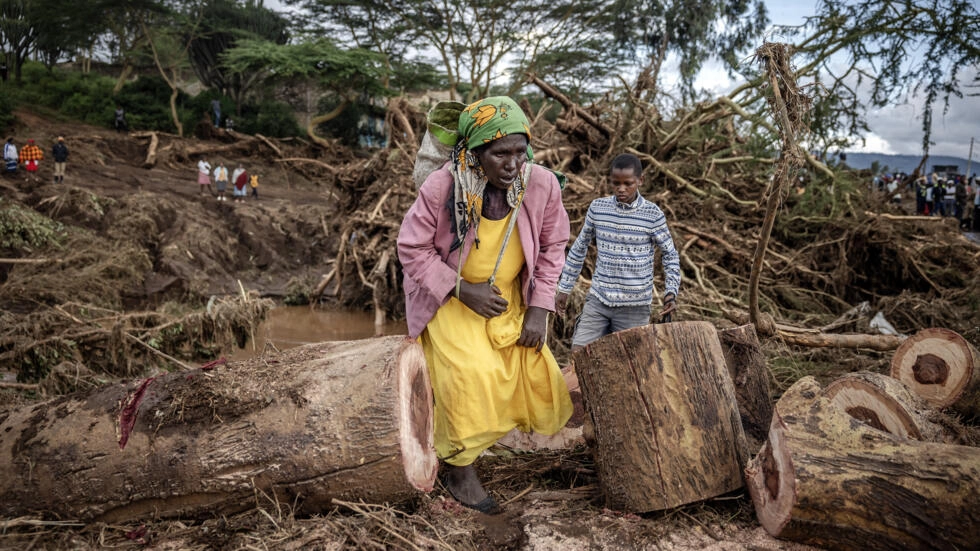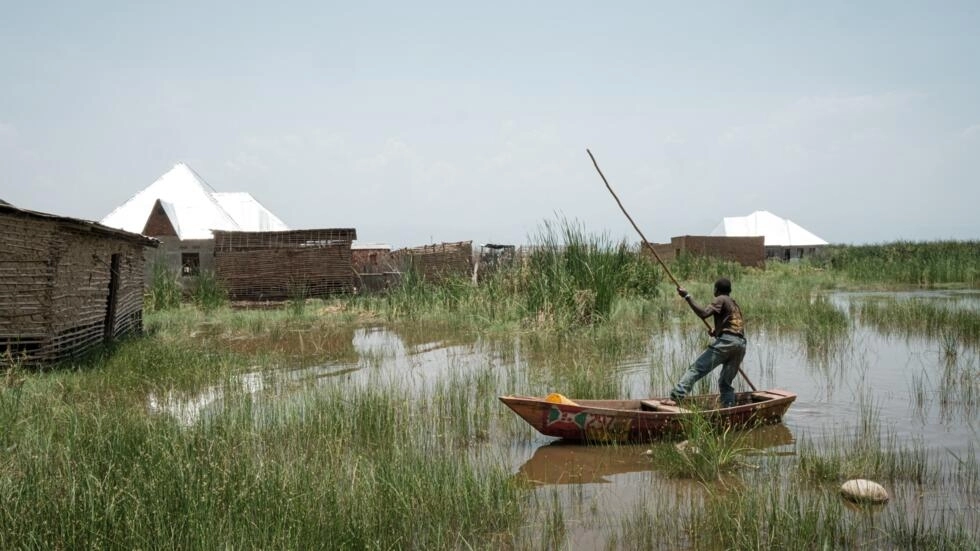A Growing Crisis: Flooding and Climate Change in East Africa
Over the past few months, East Africa has witnessed devastating flooding that has claimed the lives of hundreds, displaced thousands, and impacted millions of others. The relentless rains, driven by climate change and exacerbated by inadequate infrastructure and poor land planning, have swept through Kenya, Tanzania, and Burundi, leaving a trail of destruction in their wake.
Kenya: Tragedy in Torrential Rains
In Kenya, the heavy rains have been particularly destructive, with women and girls bearing a disproportionate burden as floods wreak havoc. The government’s Disaster Response Unit reports that over 200 people have died, and more than 20,000 families have been displaced due to flooding. Entire villages have been submerged, roads washed away, and bridges destroyed, creating chaos and leaving many without access to basic necessities.
The floods have disproportionately impacted women and girls, exacerbating existing gender inequalities. Many women have lost their livelihoods, homes, and access to essential items such as food, clean water, and sanitary products. Despite their resilience, women in flood-affected communities urgently require support in the form of safety, resources, and a gender-responsive approach to disaster relief efforts.
“I lost everything,” says Mary, a resident of Budalangi, a region known for frequent flooding. “My home is gone, my livestock drowned, and I don’t know how I will start again.” Stories like Mary’s are echoed across the country as families struggle to cope with the aftermath of the floods. For many women, the loss of livelihoods means a loss of independence and the ability to care for their families.
Jane, a single mother from Kisumu, recounts her ordeal: “The floods washed away my small kiosk, which was my only source of income. Now, I have to rely on charity to feed my children. It’s so hard to keep going.” Jane’s story reflects women’s immense challenges, not just in rebuilding their lives but also in maintaining their dignity amid the chaos.



Tanzania: A Nation in Recovery
In Tanzania, the situation is equally dire. Coastal regions have been hit hard, with more than 150 lives lost and thousands displaced. The impact on agriculture has been severe, with large swaths of farmland submerged under water, leading to food shortages and a significant economic impact.
“We’re used to rain, but this was different,” says Omari, a farmer from the Rufiji Delta. “The river overflowed, and everything was swept away. We need help to rebuild.” The Red Cross and other humanitarian organizations have been working tirelessly to provide aid, but the scale of the disaster is overwhelming.

Burundi: Struggling to Cope
In Burundi, the floods have claimed over 100 lives and displaced thousands more. The country’s fragile infrastructure has crumbled under pressure, with landslides and road collapses compounding the crisis. Displaced families live in temporary shelters, and access to clean water and sanitation has become critical.
“We’re scared,” says Francine, a mother of three from Bujumbura. “The rain hasn’t stopped, and we don’t know where to go. Our home is gone, and there’s no end in sight.” The lack of proper planning and infrastructure has only worsened the situation, leading to a desperate need for humanitarian assistance.

The Role of Climate Change and Infrastructure Failures
Despite the overwhelming challenges, there is hope. The Red Cross and other humanitarian organizations have been at the forefront of providing aid, and many Kenyans have come together to support fundraising efforts for those affected by the floods. The Women Peace Climate Resilience and Justice Association (WOPCAA )calls on well-wishers and the international community to support their work in educating grassroots communities, especially women, who are among the most vulnerable.
“We need to focus on resilience and empowerment,” says Skitter M. Ocharo, PhD, MBA, CPM, HSC , Executive Director at WoPCAA. “By supporting women and grassroots communities, we can help them rebuild and prepare for future challenges.” The need for support is urgent, and every effort counts in the fight against the devastating impact of climate change and flooding in East Africa.
A Call for Support
While climate change is driving the extreme weather events, the lack of proper infrastructure and poor land planning have made the situation even more precarious. In many cases, buildings and roads have been constructed in flood-prone areas, and drainage systems are inadequate to handle the deluge of rain. This has led to catastrophic consequences for communities across East Africa.
